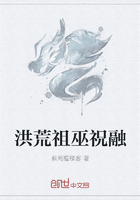She took from it a gold ring--a heavy seal ring. She held this out to me in the most matter-of-fact way--scarcely turning, in fact. "Put it on your finger," she said hurriedly. "If you are stopped by soldiers, or if they will not give you a boat to cross the river, say boldly that you are on the king's service. Call for the officer and show that ring. Play the man. Bid him stop you at his peril!"I hastily muttered my thanks, and she as hastily took something from a drawer, and tore it into strips. Before I knew what she was doing she was on her knees by me, fastening a white band of linen round my left sleeve. Then she took my cap, and with the same precipitation fixed a fragment of the stuff in it, in the form of a rough cross.
"There," she said. "Now, listen, M. de Caylus. There is more afoot to-night than you know of. Those badges will help you across to St. Germain, but the moment you land tear them off:
Tear them off, remember. They will help you no longer. You will come back by the same boat, and will not need them. If you are seen to wear them as you return, they will command no respect, but on the contrary will bring you--and perhaps me into trouble.""I understand," I said, "but--"
"You must ask no questions," she retorted, waving one snowy finger before my eyes. "My knight-errant must have faith in me, as I have in him; or he would not be here at this time of night, and alone with me. But remember this also. When you meet Pavannes do not say you come from me. Keep that in your mind; Iwill explain the reason afterwards. Say merely that his wife is found, and is wild with anxiety about him. If you say anything as to his danger he may refuse to come. Men are obstinate."I nodded a smiling assent, thinking I understood. At the same time I permitted myself in my own mind a little discretion.
Pavannes was not a fool, and the name of the Vidame--but, however, I should see. I had more to say to him than she knew of. Meanwhile she explained very carefully the three turnings Ihad to take to reach the river, and the wharf where boats most commonly lay, and the name of the house in which I should find M. de Pavannes.
"He is at the Hotel de Bailli," she said. "And there, I think that is all.""No, not all," I said hardily. "There is one thing I have not got. And that is a sword!"She followed the direction of my eyes, started, and laughed--a little oddly. But she fetched the weapon. "Take it, and do not," she urged, "do not lose time. Do not mention me to Pavannes. Do not let the white badges be seen as you return.
That is really all. And now good luck!" She gave me her hand to kiss. "Good luck, my knight-errant, good luck--and come back to me soon!"She smiled divinely, as it seemed to me, as she said these last words, and the same smile followed me down stairs: for she leaned over the stair-head with one of the lamps in her hand, and directed me how to draw the bolts. I took one backward glance as I did so at the fair stooping figure above me, the shining eyes, and tiny outstretched hand, and then darting into the gloom Ihurried on my way.
I was in a strange mood. A few minutes before I had been at Pavannes' door, at the end of our journey; on the verge of success. I had been within an ace, as I supposed at least, of executing my errand. I had held the cup of success in my hand.
And it had slipped. Now the conflict had to be fought over again; the danger to be faced. It would have been no more than natural if I had felt the disappointment keenly: if I had almost despaired.
But it was otherwise--far otherwise. Never had my heart beat higher or more proudly than as I now hurried through the streets, avoiding such groups as were abroad in them, and intent only on observing the proper turnings. Never in any moment of triumph in after days, in love or war, did anything like the exhilaration, the energy, the spirit, of those minutes come back to me. I had a woman's badge in my cap--for the first time--the music of her voice in my ears. I had a magic ring on my finger: a talisman on my arm. My sword was at my side again. All round me lay a misty city of adventures, of danger and romance, full of the richest and most beautiful possibilities; a city of real witchery, such as I had read of in stories, through which those fairy gifts and my right hand should guide me safely. I did not even regret my brothers, or our separation. I was the eldest.
It was fitting that the cream of the enterprise should be reserved for me, Anne de Caylus. And to what might it not lead?
In fancy I saw myself already a duke and peer of France--already I held the baton.
Yet while I exulted boyishly, I did not forget what I was about.
I kept my eyes open, and soon remarked that the number of people passing to and fro in the dark streets had much increased within the last half hour. The silence in which in groups or singly these figures stole by me was very striking. I heard no brawling, fighting or singing; yet if it were too late for these things, why were so many people up and about? I began to count presently, and found that at least half of those I met wore badges in their hats and on their arms, similar to mine, and that they all moved with a businesslike air, as if bound for some rendezvous.
I was not a fool, though I was young, and in some matters less quick than Croisette. The hints which had been dropped by so many had not been lost on me. "There is more afoot to-night than you know of!" Madame d'O had said. And having eyes as well as ears I fully believed it. Something was afoot. Something was going to happen in Paris before morning. But what, I wondered.
Could it be that a rebellion was about to break out? If so I was on the king's service, and all was well. I might even be going--and only eighteen--to make history! Or was it only a brawl on a great scale between two parties of nobles? I had heard of such things happening in Paris. Then--well I did not see how I could act in that case. I must be guided by events.















